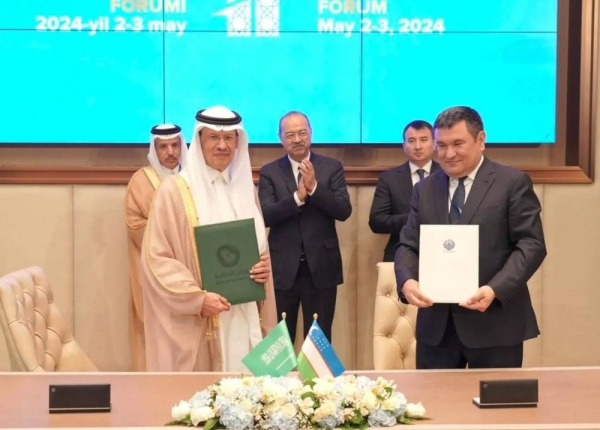Prince Abdulaziz Bin Salman, the Minister of Energy of Saudi Arabia, recently met with his Uzbek counterpart, Jurabek Mirzamahmudov, to enhance the energy partnership between the two countries. The ministers signed an Energy Cooperation Roadmap, which builds upon the Cooperation Agreement in the energy field that was reached in 2022. The roadmap focuses on stabilizing global energy markets, improving electricity and renewable energy collaborations, and increasing investment opportunities in both nations. One of the key aspects of the roadmap is the promotion of green and clean energy technologies, such as carbon capture and the circular carbon economy. This partnership aims to support sustainable energy development in Uzbekistan and aligns with Saudi Arabia’s significant investments in the Uzbek power sector.
The Energy Cooperation Roadmap outlines various initiatives to enhance the collaboration between Saudi Arabia and Uzbekistan in the energy sector. One of the main goals of the partnership is to stabilize global energy markets and ensure a steady supply of energy resources. By working together, both countries can address challenges in the energy market and promote stability for the benefit of their economies and the global community. The roadmap also focuses on enhancing electricity and renewable energy collaborations, which will promote the use of clean and sustainable energy sources in both countries. This collaboration will not only benefit Saudi Arabia and Uzbekistan but will also contribute to global efforts to reduce carbon emissions and combat climate change.
Moreover, the Energy Cooperation Roadmap emphasizes the importance of expanding investment opportunities in the energy sector in both Saudi Arabia and Uzbekistan. By facilitating investments in energy projects, both countries can promote economic growth and create job opportunities for their citizens. This will help to strengthen the economic ties between Saudi Arabia and Uzbekistan and enhance their overall partnership in the energy sector. Additionally, the roadmap highlights the mutual support for the development of green and clean energy technologies, including carbon capture and the circular carbon economy. By sharing expertise and resources, both countries can accelerate the transition to sustainable energy sources and contribute to the global efforts to protect the environment.
Furthermore, the partnership between Saudi Arabia and Uzbekistan in the energy sector not only strengthens their economic ties but also supports global energy stability and sustainability efforts. By working together, both countries can contribute to the development of green and clean energy technologies and promote sustainable energy development. This will help to reduce carbon emissions and combat climate change, which are pressing global challenges. The Energy Cooperation Roadmap reaffirms the commitment of Saudi Arabia and Uzbekistan to promoting sustainable energy development and underscores the importance of collaboration in achieving their energy goals. The partnership between the two countries will not only benefit their economies but will also have a positive impact on the global energy sector.
In conclusion, the meeting between Prince Abdulaziz Bin Salman, the Minister of Energy of Saudi Arabia, and his Uzbek counterpart, Jurabek Mirzamahmudov, marks a significant step in strengthening the energy partnership between the two countries. The signing of the Energy Cooperation Roadmap demonstrates their commitment to enhancing cooperation in the energy sector and promoting sustainable energy development. By working together, Saudi Arabia and Uzbekistan can address challenges in the energy market, promote the use of clean and sustainable energy sources, and support global efforts to combat climate change. The partnership between the two countries not only benefits their economies but also contributes to the stability and sustainability of the global energy sector. With the Energy Cooperation Roadmap in place, Saudi Arabia and Uzbekistan are poised to make significant progress in achieving their energy goals and promoting a more sustainable future for all.








